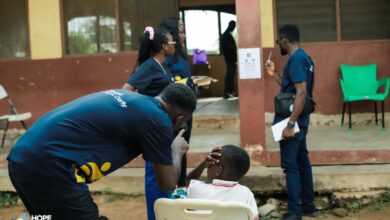1.9m young people not in education, employment, or training

In the third quarter of 2023, a staggering 1.9 million young people aged 15 to 35 in Ghana were not engaged in education, employment, or training (NEET), according to the 2023 Annual Household Income and Expenditure Survey (AHIES) conducted by the Ghana Statistical Service (GSS). The data reveals a significant gender disparity, with females (1.2 million) outnumbering males (715,691) in the NEET category.
Regional breakdown of youth NEET
Greater Accra Region emerged as the area with the highest concentration of youth NEET, accounting for over one-third of the total, with 565,360 young people not involved in any of the three key activities. Four other regions also reported alarming figures, each with over 100,000 youth NEET:
- Ashanti: 352,503
- Central: 155,171
- Eastern: 143,601
- Western: 137,865
Gender and Regional Disparities
The NEET rate for females (21.0%) was significantly higher than for males (15.0%). Greater Accra not only had the highest overall NEET rate at 26.9% but also showed a worrying trend of increased NEET rates for both genders between Q3 2022 and Q3 2023. The North East Region followed with a NEET rate of 19.5%, while Bono East had the lowest at 8.3%.
Urban vs. Rural NEET rates
The survey also highlighted a disparity between urban and rural areas, with urban youth having a higher NEET rate (20.6%) compared to their rural counterparts (15.0%).
Year-on-Year Comparison
Comparing the third quarter of 2023 with the same period in 2022, there was a notable decrease in the overall NEET rate, which fell by 5.9 percentage points from 24.1% to 18.2%. This translates to a reduction of almost half a million (462,998) youth NEET. Despite this positive trend, Greater Accra was the only region to record an increase in NEET rates, with a marginal rise of 0.5 percentage points.
Implications and future directions
The persistent high NEET rates, particularly among females and in urban areas, highlight the need for targeted interventions. The upcoming World Youth Skills Day on July 15, 2024, themed “Youth Skills for Peace and Development,” underscores the importance of equipping young people with relevant skills for employment, decent work, and entrepreneurship.
Call to action
Addressing the NEET crisis requires collaborative efforts from government, private sector, and civil society. Enhanced focus on vocational training, educational reforms, and job creation initiatives are critical to reducing the NEET rates and ensuring a sustainable future for Ghana’s youth.
The AHIES report serves as a clarion call for policymakers to prioritize youth engagement in education and employment to harness the demographic dividend and foster socio-economic development in Ghana.




